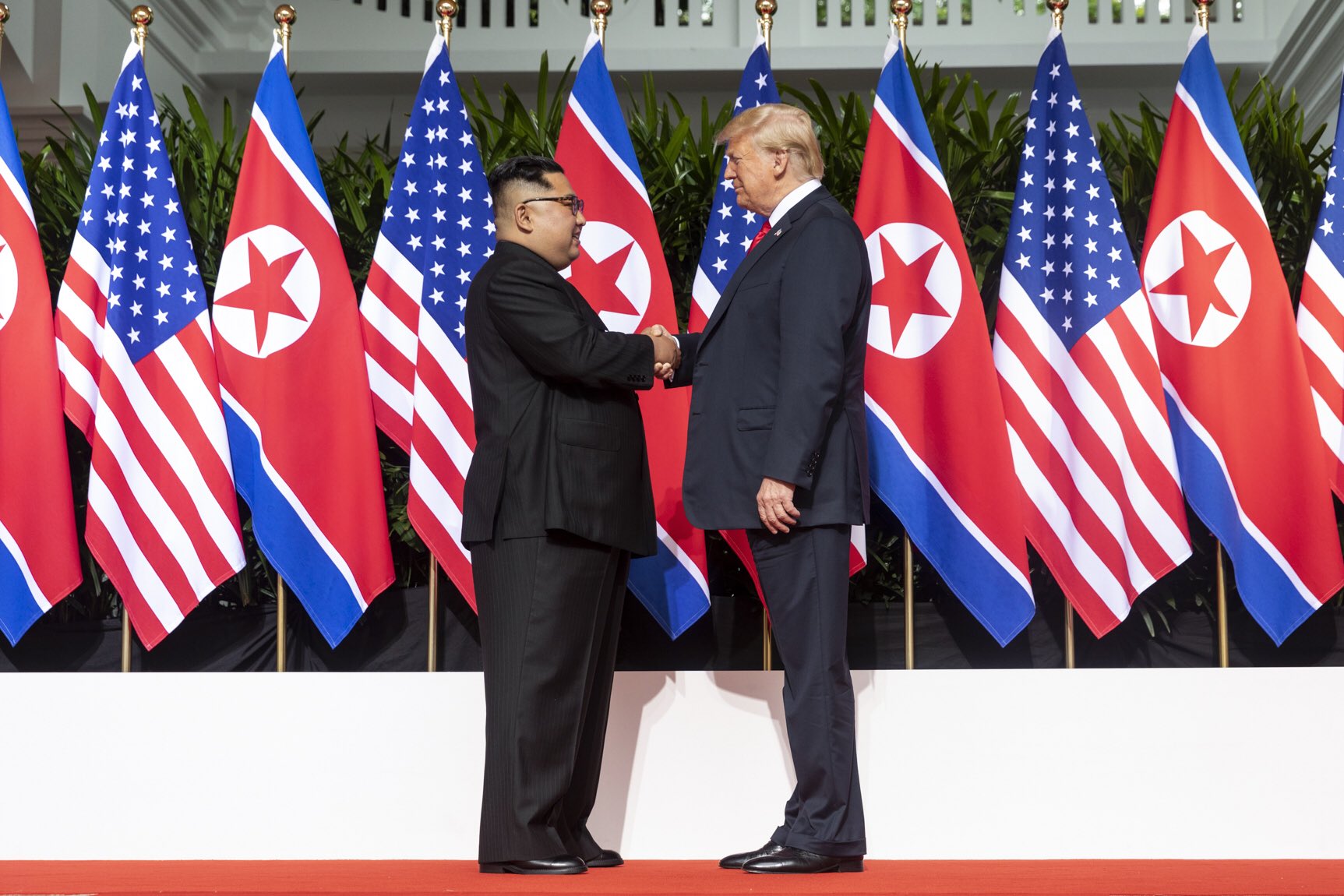BY ALEXANDRA SCHMITT
The summit between President Donald Trump and North Korean leader Kim Jong-un, scheduled for this week in Vietnam, promises to be a dramatic reunion. Trump, for his part, bragged that he and Kim “fell in love” during their last meeting in Singapore and that he “developed a very special bond” with the dictator. Trump tweeted with excitement last week that he was “looking forward to seeing Chairman Kim.” But there’s one constituency that’s getting very little love in this relationship so far: the North Korean people.
Among high-level agenda items like denuclearization and missile tests, North Korea’s human rights record is conspicuously missing. The document signed after the first Trump-Kim meeting contained no references to human rights. When questioned by media, Trump defended Kim, arguing, “but so have a lot of other people have done some really bad things. I mean, I could go through a lot of nations where a lot of bad things were done.”
The summit in Hanoi will be the second meeting between Trump and Kim. The June 2018 summit in Singapore was the first time a sitting US president met face to face with a North Korean leader. Denuclearization and international sanctions will again be the sole focus of talks this week.
Trump’s refusal to bring human rights into the conversation is a disappointing departure from previous US administrations. George W. Bush signed the 2004 North Korea Human Rights Act, which established the position of special envoy on North Korea human rights issues (a position Trump has not filled). The Obama administration imposed the first ever sanctions for grave human rights abuses on Kim and 14 other top North Korean leaders.
North Korea’s dismal record on human rights is well known. A landmark report by a UN Commission of Inquiry in 2014 documented “wide-ranging and ongoing crimes against humanity” perpetrated by the government. The United States condemns Pyongyang’s record in annual State Department reports and in international fora like the UN.
It is disappointing that Trump appears unwilling to raise these issues, especially when there are strategic reasons to do so. Human rights violations and nuclear proliferation are inextricably linked in North Korea because the regime relies on forced labor to build infrastructure for its military endeavors. Economic relief for the hermit kingdom is meaningless if the economy is still based on forced labor. The Kim regime refuses to admit outside officials to monitor human rights; will Pyongyang suddenly open up for an intrusive inspection regime to verify denuclearization? Attempting to denuclearize North Korea without dealing with these underlying structural issues is unlikely to be sustainable.
If Trump truly wants to create lasting peace on the Korean peninsula, he should be the first American president to personally raise human rights concerns with the North Korean leader. Given Trump’s chummy relationship with Kim – the regime reportedly won’t deal with lower-level US officials at this point – he may be able to break the ice on this issue. The North Koreans are apparently strategizing to get Trump and Kim to meet one-on-one; this would be a perfect opportunity to be candid about US concerns about Pyongyang’s rights record. Trump would get the credit he craves from many constituencies for doing so: Republicans and Democrats who have led bipartisan efforts on human rights in North Korea, evangelical groups who have fought for religious freedom in the country, and the international community that seeks a peaceful deal.
There is an obvious risk in raising these issues. The Kim regime signaled that its domestic record is not up for discussion. Some security-oriented analysts have argued that it is easier to delink the two tricky issues of proliferation and rights, or that progress on denuclearization could yield future progress on rights. But this approach is shortsighted and wildly optimistic. The most successful long-term negotiated agreements, like the Dayton Accords, explicitly address human rights concerns. Linking the issues could unlock incremental progress and build trust, like agreeing to let in UN human rights envoys as a step towards a broader inspection program. The UN special rapporteur on human rights in North Korea warned that any deal that doesn’t include human rights issues “will remain fragile” and would be a “missed opportunity.”
Trump’s leadership on this issue could be transformational. He might have the right mix of personal relationship and irreverence for traditional diplomacy to make the criticisms sink in with Kim. Raising human rights at this early stage would make clear to the North Koreans that long-term progress on peace and security depends on seriously improving the rights record. When Trump hosted North Korean defectors in the Oval Office last year, he asked them to share their stories “because the world would really like to hear.” A year later, one defector lamented that “Human rights vocabulary had disappeared long ago after” Kim Jong-un took power, “but it seems even in the US, it is kind of disappearing.”
The North Korean people deserve a voice in these talks. Trump can use his unique relationship with Kim to ensure that they are heard.
Alexandra Schmitt is a second year Master in Public Policy candidate at the Harvard Kennedy School concentrating in international and global affairs. Prior to HKS, she worked on US foreign policy advocacy at Human Rights Watch.
Edited by Anna Mysliwiec
Photo credit Dan Scavino Jr. via Wikimedia Commons

